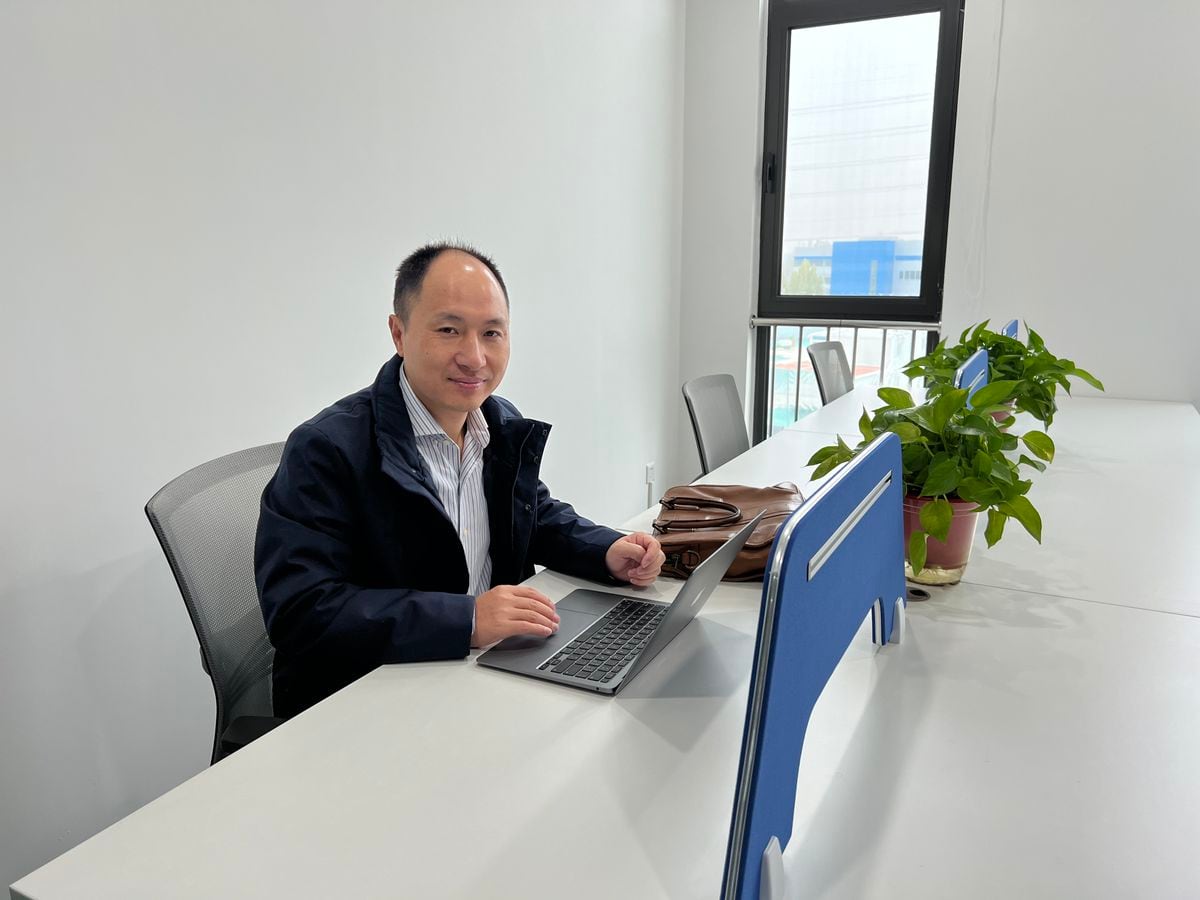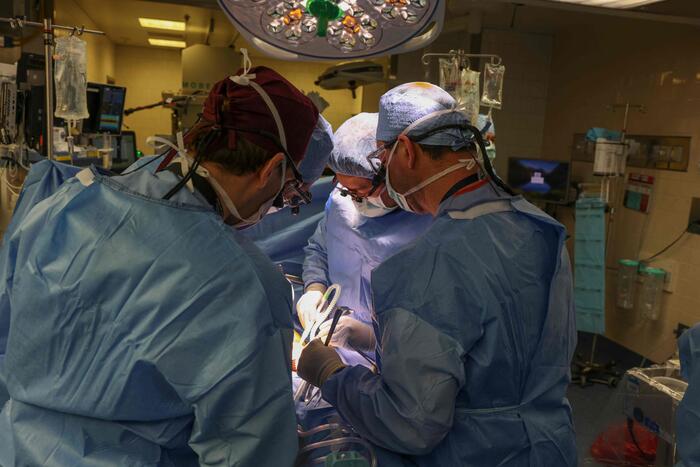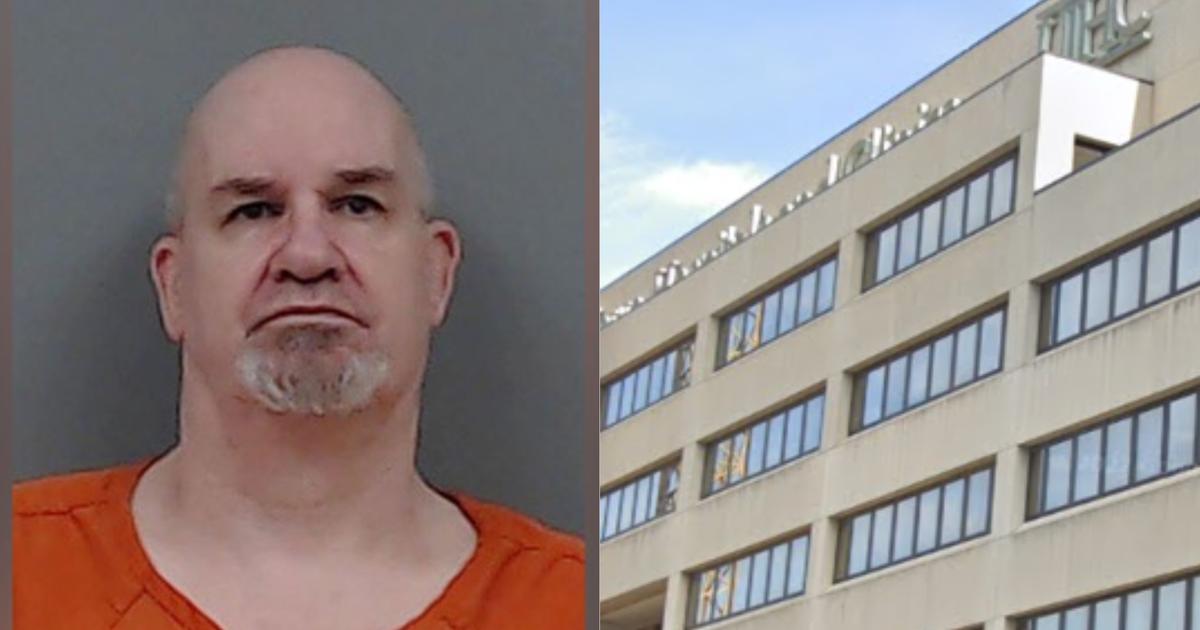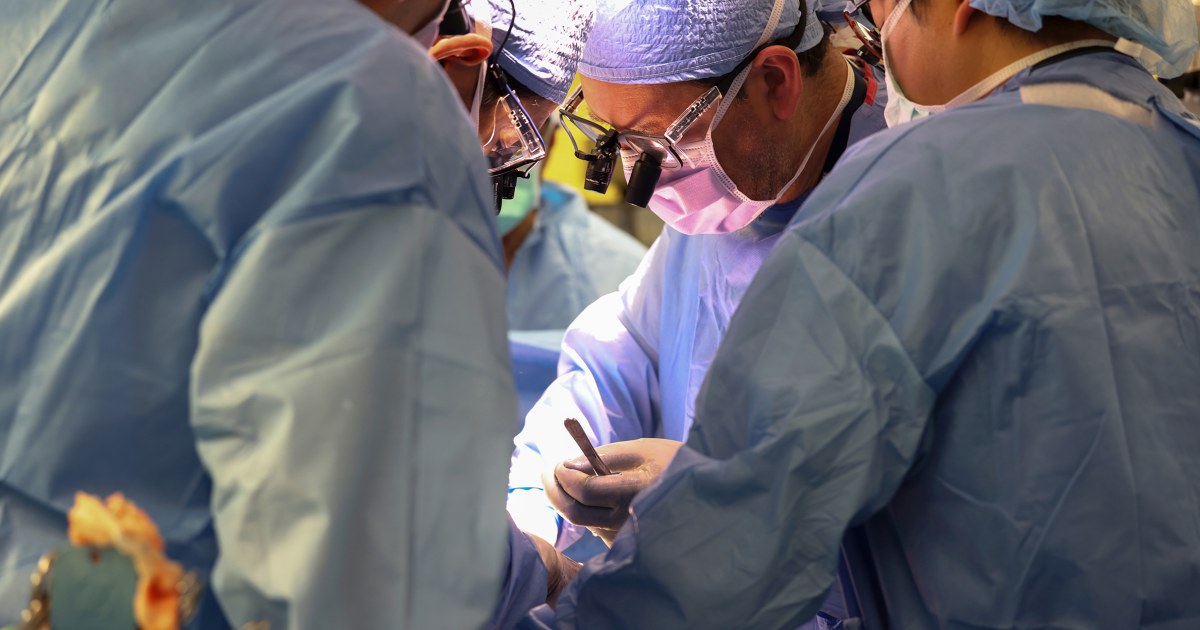He Jiankui, the scientist who created the first genetically modified babies in one of the craziest and most dangerous experiments in history, has been released from prison and wants to return to science to cure genetic diseases in children and adults.
This has been confirmed by He himself to EL PAÍS in several emails, since he does not want to offer interviews in person.
Most of the international experts consulted by this newspaper, including a Nobel Prize winner, see the return of He with real terror.
His acts, considers Kiran Musunuru, an expert in gene editing, "are as serious as the war crimes committed by Nazi doctors during World War II."
In November 2018, this 38-year-old biophysicist trained in China and the US announced the birth of twin girls nicknamed Lulu and Nana.
They were the first human beings whose genome had been edited, for which he used the CRISPR tool.
He's declared intention was to modify the
CCR5
gene to confer resistance to the AIDS virus, since the girls' parents were infected.
The announcement was greeted with joy by the Chinese authorities at first, but later it became known that the experiments had violated the most basic ethical and medical regulations.
Later it was learned that He was aware that the genome of the embryos contained unwanted errors, but still continued with the procedure to achieve a pregnancy by in vitro fertilization.
Since then, the identity, whereabouts and health status of the two twins and that of a third girl who was born to another couple in 2019 have been one of China's best kept secrets.
Protecting their identity is crucial because of the brutal impact that being identified could have on them: they are the only three representatives of a new human lineage whose genome has been rewritten without knowing the consequences for their health and future.
He was sentenced to three years in prison by a Chinese court and the genome of the embryos contained unwanted errors
In 2019 He was sentenced to three years in prison by a Chinese court.
After his experiments, it became clear that the scientist did not act alone.
Two of his collaborators also went to jail and various experts at home and abroad, including US investigators, knew of his intentions and encouraged him to continue.
The scientist was released from prison a few months ago.
"Now I live quite well," he writes.
"I spend time with my wife and two daughters, I have settled in Beijing and I have started playing golf."
He explains that he has rented a 100-square-meter office in the Daxing district of the Chinese capital, where he works with at least two collaborators in the new non-profit organization he has created: the Research Institute for Rare Diseases.
The scientist assures that this "laboratory" will focus on treating "children and adults, but not embryos" in an attempt to cure diseases of genetic origin such as Duchenne muscular dystrophy, a rare disease that can be fatal and that affects above all to males.
“My goal is to get 137 million euros from the founder of the Alibaba portal and other billionaires”
He Jiankui
The researcher has posted photos on his social networks together with alleged relatives of patients.
“Many affected families have contacted me to donate money, but I still haven't decided if I should do it,” he says.
“My goal is to get 1,000 million yuan [137 million euros] from Jack Ma [founder of the Alibaba portal], Huateng Ma [founder of Tencent] and other billionaires.
The first donation I received came from the US, ”he says.
If he gets that amount, he says, it will cure genetic diseases in about three years, he says.
He does not answer the questions about his experiments formulated by EL PAÍS.
About his time in prison and whether he plans to ask for forgiveness, he responds: “I have learned that I did things too fast.
My next investigations will be transparent and open to everyone.
All the advances will be published on social networks and there will be an international team of scientists who will review our work”.
Almost no one denies that He is right to consider the current price of gene therapy excessive.
The few such drugs that have been developed to date are among the most expensive in the world.
The most expensive of all has just been approved in the US to treat a hereditary blood disease with a price tag of $3.5 million per patient.
He argues that his objective is to make these therapies cheaper in China to one million yuan, about 130,000 euros, although he does not clarify how he will achieve it.
This is a very delicate field of research in which there have been resounding failures.
The most recent was the death in the US of Terry Horgan, who precisely suffered from Duchenne muscular dystrophy, in a million-dollar clinical trial that his own brother had helped finance.
He Jiankui in the office he has rented in the Daxing district of the Chinese capital.HJ
The main reason for the price of these therapies is that it is very expensive to do all the necessary research, explains Musunuru, a scientist and doctor at the University of Pennsylvania (USA) and a good connoisseur of the He case, about which he wrote the book
The CRISPR generation
.
“You can't take shortcuts in this field and that's what He did.
He bought cheap CRISPR materials that were not approved for human use, injected them into embryos, and carried out the pregnancies with no apparent concern for the safety of the mother or children.
He is the last person I would trust to get cheaper therapies.
What his attitude shows us is that he has once again taken shortcuts in search of fame, ”says the scientist.
He has not given details of his experiments with the embryos or published a detailed study on it.
A draft of her study revealed in 2019 by Technology Review showed that the genetic editing of the embryos had been imperfect and that at least one of the girls carried unwanted errors in her genome.
This newspaper has contacted some of the world's leading experts in gene editing and bioethics who took part in international discussions about He's experiments with human embryos and decided the need to stop them in the future.
This type of practice is already prohibited in China and other countries, including Spain.
The same experts believe that current gene editing tools are not ripe enough to be used on sperm, eggs or embryos, which would introduce changes in the human genome that would pass from generation to generation.
None of the experts consulted is in favor of rehabilitating the Chinese scientist, especially until he publishes all the details of his experiment.
"He's mistake was so huge that I would not agree to finance his new experiments in biomedicine"
David Baltimore, Nobel Prize in Medicine
David Baltimore, professor emeritus of biology at the California Institute of Technology and winner of the Nobel Prize in Medicine in 1975, opines: "Everyone deserves a second chance after making a mistake, but He's was so huge that I would not agree to finance his mistakes." new experiments in biomedicine”.
George Church, a researcher at Harvard University and one of the leading scientists in the use of gene editing, believes that He will get away with it.
“The world of science tends to give second chances,” he explains.
“But we need very close surveillance of any experimental therapy.
There are many clinical trials and even already approved therapies that have negative consequences.
It is possible that the babies whose genome was edited have not suffered negative consequences and, hopefully, their health is being closely monitored, ”he adds.
Learn from your mistakes
Last year, Ruipeng Lei and Renzong Qiu, two bioethicists from Huazhong University of Science and Technology and the Chinese Academy of Sciences, asked Chinese authorities to monitor the health of the three girls whose genome He edited.
These people should be declared a "vulnerable group" and have access to an extraordinary level of medical and psychological surveillance that prevents them from being identified, that guarantees that they "will not be stigmatized" and that discourages them from "any temptation to obtain fame or money," they wrote. the two authors in a forum published in September.
He assures that he will give explanations this year at scientific congresses in Europe and the United States.
One of the appointments will be at the University of Oxford (United Kingdom).
Eben Kirksey, anthropologist at this center and author of the book
The Mutant Project
-with interviews with some of the people involved in He's experiments- has invited him to give a talk.
Kirksey says that the details of the meeting have not yet been decided and that the university's policy is not to comment on the speakers it invites.
The investigator believes that it is essential that He explain what exactly happened.
“There are eminent bioethicists who think they should not be allowed to publish their research.
I do not agree.
There is a lot to learn from their ethical mistakes and from their scientific investigations with regard to the application of CRISPR in reproductive medicine, ”he says.
He Jiankui, pictured in his lab in 2019, after announcing his experiments.Mark Schiefelbein (AP)
Kiran Musunuru, the CRISPR expert who compares He to Nazi doctors, notes: "I don't imagine anyone would now accept those doctors going back to practice."
“As an ex-convict, He Jiankui should be prevented from entering any country and any participation of his in international conferences should be blocked,” he opines.
A few days ago, He shared on his social networks an article written in
The New York Times
by Fyodor Urnov, an expert in gene editing at the University of California at Berkeley.
The text defended a greater commitment to develop cures for rare and deadly diseases using gene editors such as CRISPR.
These advances, He wrote, will also serve to cure cancer or Alzheimer's in the future.
Urnov lashes out at He when EL PAÍS consults him about the work of the Chinese scientist: “Patients with rare genetic diseases and their families are desperate for a cure.
Doctors and scientists must be extremely careful about possible negative effects.
He Jiankui has shown that he cannot respect the most basic ethical and medical standards.
They should ban him from doing any experiments that have to do with human health for life.
We all deserve a second chance except when there are innocent lives in danger”, Urnov points out.
This researcher recognizes that the figure of He casts too great a shadow to be ignored.
"It's a nightmare.
No one can have a conversation about gene therapy anymore without his name coming up,” he confesses.
Lluis Montoliu, a researcher at the National Center for Biotechnology who is an expert in gene editing with CRISPR, highlights one last argument for not re-accepting He in the scientific community.
The experiments he carried out had no justification, he explains, since techniques such as sperm washing are commonly used that would have guaranteed that the girls would have been born without a trace of HIV.
In March Montoliu will be one of dozens of scientists who will attend the third international conference on human genome editing, the most important event in the field, which is being held in London.
The scientist warns that it is still early to try to use gene editing with human reproductive cells and embryos, since the risks are ignored and, above all, "there is no cause that justifies it and that cannot be treated with other methods."
You can follow
MATERIA
on
,
and
, or sign up here to receive
our weekly newsletter
.
Subscribe to continue reading
Read without limits
Keep reading
I'm already a subscriber









